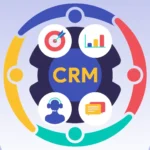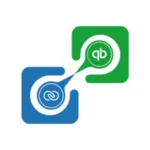The world of Customer Relationship Management (CRM) has become one of the most exciting and rewarding career fields today. From managing client relationships to using data for smarter decision-making, CRM professionals are at the heart of how modern businesses grow. For those exploring a CRM career or simply curious about how much these professionals earn, this guide offers a complete look at CRM salaries, bonuses, and opportunities for long-term success.
This article explores everything from job roles and salary ranges to career growth and practical tips on how to apply for CRM-related positions. It aims to make the CRM career path clear, approachable, and inspiring for anyone looking to understand this thriving field better.
The CRM Job Landscape: Where Technology Meets Relationship Building
CRM roles have evolved far beyond just managing databases or contact lists. Today, CRM systems are powerful engines that help businesses connect with clients, personalize communication, and make data-driven decisions. Organizations in industries like finance, real estate, healthcare, and tech all depend on CRM professionals to keep relationships strong and business operations efficient.
This growing demand means CRM specialists, analysts, and developers are becoming increasingly valuable. They combine analytical skills with creativity, using tools like Salesforce, HubSpot, or Zoho CRM to improve customer engagement and boost sales. Whether it’s a financial advisor tracking client portfolios or a marketing team managing leads, CRM experts play an essential role in every step of the customer journey.
Common CRM Job Roles and Salary Insights
CRM careers cover a wide range of roles, each offering its own challenges, focus areas, and rewards. Salaries depend on experience, company size, and industry specialization, but overall, the compensation is competitive and reflects the value CRM professionals bring.
Here are some of the most common CRM positions and their typical salary ranges:
-
CRM Coordinator / Specialist – $50,000 to $70,000 per year
Entry-level roles where professionals handle data entry, customer communication, and campaign support. -
CRM Analyst – $65,000 to $90,000 per year
Analysts collect and interpret customer data to identify patterns, improve marketing efficiency, and boost sales performance. -
CRM Administrator – $70,000 to $95,000 per year
Administrators maintain and optimize CRM systems, ensuring data accuracy and smooth integration between departments. -
CRM Manager – $85,000 to $120,000 per year
Managers lead CRM strategy, oversee implementation, and ensure systems align with overall business goals. -
CRM Developer / Technical Consultant – $90,000 to $130,000 per year
Developers customize and build CRM features, often specializing in technical platforms such as Salesforce or HubSpot. -
CRM Director / Head of CRM – $120,000 to $180,000+ per year
Senior leaders set CRM strategy across an organization, managing teams and aligning customer engagement efforts with company objectives.
In many industries—especially financial services, technology, and e-commerce—CRM professionals enjoy higher pay due to the direct impact of their work on revenue and client retention.
How Professionals Can Grow and Earn More in CRM
Growth in CRM careers often depends on a mix of technical skills, business understanding, and leadership potential. The more professionals can bridge technology with strategy, the faster they advance and increase their earning potential.
1. Upskilling and Certifications
Gaining recognized certifications such as Salesforce Administrator, HubSpot CRM Specialist, or Microsoft Dynamics Expert helps professionals stand out and command higher salaries.
2. Performance and Measurable Results
Companies reward CRM professionals who deliver tangible results—such as higher customer retention, better conversion rates, or more efficient workflows. Performance bonuses are often tied to these metrics.
3. Cross-Department Collaboration
Those who can connect CRM insights across marketing, sales, and customer service departments tend to move up faster. Collaboration demonstrates leadership and understanding of the bigger business picture.
4. Leadership and Mentorship
Taking initiative to mentor new team members or lead CRM integration projects can lead to managerial promotions and increased compensation.
The secret to continuous growth in CRM lies in staying curious and adaptable, always ready to learn new tools and strategies as the customer experience landscape evolves.
How to Apply for CRM-Related Positions
Finding a CRM job can be a rewarding process when approached strategically. Here’s a practical step-by-step guide for those preparing to enter or move up in the CRM field.
-
Identify a Specialization
Choose whether to focus on the technical, analytical, or strategic side of CRM. Each path offers unique opportunities and learning curves. -
Build a Strong Resume
Highlight relevant experience with CRM platforms, data management, and campaign performance. Even small projects that show problem-solving or efficiency improvements can stand out. -
Earn Certifications or Take Training Courses
Completing CRM-related certifications or online programs shows initiative and proves a deeper understanding of system functionality and business value. -
Create a Portfolio
Include examples such as CRM dashboards, automation workflows, or data analysis reports that demonstrate real impact on customer experience. -
Network Within the Industry
Engage with CRM professionals through online forums, LinkedIn groups, or industry events. Networking often leads to job opportunities and valuable mentorship connections. -
Apply Strategically
Use job platforms like LinkedIn, Glassdoor, or Indeed, but also check company websites directly—many organizations post exclusive CRM roles on their own pages. -
Prepare for Interviews
Focus on sharing practical examples of achievements, such as improving lead tracking, streamlining data entry, or boosting campaign ROI. Employers value results and impact.
Conclusion
A career in CRM combines technology, strategy, and relationship-building in one powerful field. With growing demand across industries, CRM roles offer both stability and opportunities for long-term professional growth.
Whether starting as a CRM coordinator or aiming for a director position, professionals can look forward to a rewarding journey filled with learning, leadership, and innovation. Those who continue to adapt and develop their skills are well-positioned to enjoy not just a competitive CRM salary but a fulfilling, future-proof career.
Frequently Asked Questions (FAQ)
1. What is the average CRM salary in 2025?
The average CRM salary ranges from $65,000 to $120,000 per year, depending on experience, industry, and region.
2. Are CRM jobs in high demand?
Yes. As companies increasingly focus on customer experience and data-driven marketing, the demand for skilled CRM professionals continues to grow.
3. Which industries offer the best pay for CRM professionals?
Financial services, technology, healthcare, and e-commerce are among the top-paying industries for CRM experts.
4. Do CRM roles include bonuses or performance incentives?
Many companies offer performance-based bonuses linked to key metrics such as customer retention, sales performance, and system efficiency.
5. What skills are important for a CRM career?
Essential skills include CRM platform proficiency, data analysis, project management, communication, and problem-solving. Technical knowledge of automation and integration tools can also be an advantage.
6. Can professionals from other fields transition into CRM?
Yes. Many CRM specialists start their careers in sales, marketing, or IT and transition successfully by gaining CRM certifications and practical system experience.




